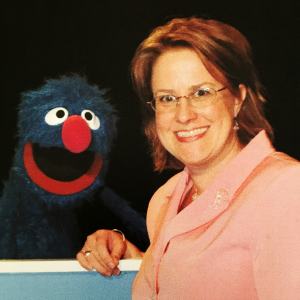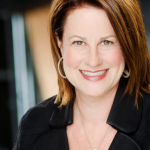 Kristie Kauerz is director of the National P-3 Center and associate clinical professor at University of Colorado Denver’s School of Education and Human Development. Kristie specializes in education reform efforts that address the continuum of learning from birth through 3rd grade, integrating birth-to-five system building, and K–12 reforms. Kristie’s expertise spans policy, research, and practice. An important aspect of her work is designing and delivering professional learning opportunities that strengthen the relationships and organizational strategies necessary to implement P-3 alignment efforts in districts, states, and communities. Kristie designed and directed the Washington P-3 Executive Leadership Certificate Program, a credit-bearing course of study that co-enrolled administrators from early learning and K–12. She has also led the National P-3 Institute since 2008. Kristie holds a bachelor’s degree in political science from Colorado College, a master’s degree in international development from American University, and a doctorate in early childhood policy from Teachers College at Columbia University.
Kristie Kauerz is director of the National P-3 Center and associate clinical professor at University of Colorado Denver’s School of Education and Human Development. Kristie specializes in education reform efforts that address the continuum of learning from birth through 3rd grade, integrating birth-to-five system building, and K–12 reforms. Kristie’s expertise spans policy, research, and practice. An important aspect of her work is designing and delivering professional learning opportunities that strengthen the relationships and organizational strategies necessary to implement P-3 alignment efforts in districts, states, and communities. Kristie designed and directed the Washington P-3 Executive Leadership Certificate Program, a credit-bearing course of study that co-enrolled administrators from early learning and K–12. She has also led the National P-3 Institute since 2008. Kristie holds a bachelor’s degree in political science from Colorado College, a master’s degree in international development from American University, and a doctorate in early childhood policy from Teachers College at Columbia University.
ED: How did you begin your career in early childhood?
Kristie: I actually stumbled into early childhood work! I thought I wanted to work in maternal and child health and community development in Africa. While finishing my master’s thesis, I went to a conference in Denver hosted by the Children’s Defense Fund. At the conference, I attended the Colorado caucus meeting and long story short ended up being offered a job as the Director of Community Development and Outreach in First Impressions, Colorado’s office of early childhood in the Governor’s Office. This started what has been my 25 years in early childhood policy. It was great to work for Governor Roy Romer and the First Lady, Bea. This was in the mid-1990s and they were some of the early, loud state level proponents of early childhood education. I became the Governor’s Policy Advisor on Early Childhood and worked with others to initiate the quality rating and improvement system for early childhood programs in Colorado, competencies for early childhood personnel, and local early childhood councils across the state. It was a really exciting time to be engaged in early childhood policy. I was in the right place at the right time and everything I’ve done in the field since then has a direct thread back to what I learned working in Colorado’s Governor’s Office.
ED: What efforts have you been involved in to improve the quality of early childhood programs and services?
Kristie: My efforts have been varied. While in Colorado’s Governor’s Office, I spent a lot of time in communities, meeting with stakeholders and people who lived all across the state. I needed to know what policies looked and felt like at the community level. This state to local connection was important to understanding how policies and budget decisions at the state level were impacting the quality of early childhood programs at the local level. I also was engaged in the state to federal connection in early childhood. Governor Romer was a proponent of having Head Start funds go to states so they could be used to build high-quality state systems and programs in early childhood. This exposed me to policies at the national level that impact early childhood programs. After working in the Colorado Governor’s office, I started my first stint in academia. I was an evaluator of Colorado’s early childhood councils and examined how early childhood systems were working at the community level. From there I went to work at Education Commission of the States (ECS). They had a robust P-20 agenda, but the bulk of their work was at the high school end. They wanted to expand their work in the early childhood side. This provided a foundation for my current work. A lot of ECS’ work was thinking about transitions between high school and community college or universities and I realized that we needed to think about transitions at the other end of the continuum so there was alignment and connections between early childhood programs and K–12 systems. Being at a national think tank like ECS allowed me to engage with policymakers to discuss the importance of supporting high-quality early childhood programs, and it helped me to understand how different things are from state to state.
While at ECS, I had the opportunity to get my doctorate. The leadership at ECS was really invested in mid-level staff getting doctorates to become better policy analysts. Sharon Lynn Kagan had just started a doctoral program at Teachers College at Columbia University in early childhood policy. Getting my doctorate was one of the smartest and hardest things that I have done. It made me a more effective policy person. The training as well as the practical experience at the community level helped me translate and bring together research, policy, and practice in early childhood; something that is not always done well in our field.
In my work since getting my doctorate, I have been deeply involved in working in school districts, which is a different lens from early childhood systems. I engage with district central offices, school administrators, and school boards about a different infrastructure that supports a K–12 system. It is really interesting to look at how we educate K–12 students and the disconnect between the early childhood and K–12 systems.
ED: What are some of the challenges you have experienced in your work and what strategies have you tried to overcome them?
Kristie: There are challenges at many levels, but a theme of the challenges is the difference in perspective. For example, there are differences in how birth to five stakeholders think of things versus K–12 stakeholders. There is no right or wrong perspective, just different perspectives. Many professionals in early childhood come up through child care, Head Start, and other preschool programs. They talk about play-based learning, developmentally appropriate practice, and Vygotsky. Those in K–12 have been trained differently. They learn about standards and curriculum and people like Dewey. While 0-5 and K–12 stakeholders hear each other, they don’t always understand the different perspective each comes from. Different perspectives also impact how we navigate policy, research, and practice. These do not always match up to each other if we are not comfortable with another’s perspective. I’ve realized that I need to be a code switcher so that I have credibility across both early childhood and K–12 systems. We don’t talk enough about differences in perspective. We tend to polarize others with different perspectives instead of spending time trying to navigate the difference in perspective. It is a common challenge in each step of the way and across different areas. We have differences in communities, and what works in one may not work in another. We need to recognize these nuances and not assume that there is a one size fits all approach to every problem or issue.
ED: What suggestions do you have for others interested in improving early childhood services and programs?
Kristie: In higher education, I enjoy getting to work with students. I tell them to be curious. Often people’s approach to becoming more effective is to become more certain in their ideas, but it should be the opposite. We need to be curious about others’ perspectives. Early childhood is an interesting space. It has changed in the past 25 years in that there is much more robustness, but we still have an identity crisis. It is a field that grapples with universal access and how to align with K–12 systems or to be a separate system. We need people who will be able to lean into the uncertainty and consider different angles and new approaches to solve our familiar problems. As a field we need more people trained in early childhood policy. We need to think of the next generation of leaders and the policy coursework and program of study they need so that they can step into policy positions. We also need to remember the joy of this work. In my work, the two most memorable and important introductions I had were to Sesame Street’s Grover and Mister Rogers. They both reminded me of the happiness and joy that we want for all children. We need to remember the special time that childhood is and to keep the joy not only for kids but also for the adults who work to support children and their families.
Blog articles provide insights on the activities of schools, programs, grantees, and other education stakeholders to promote continuing discussion of educational innovation and reform. Articles do not endorse any educational product, service, curriculum or pedagogy.

